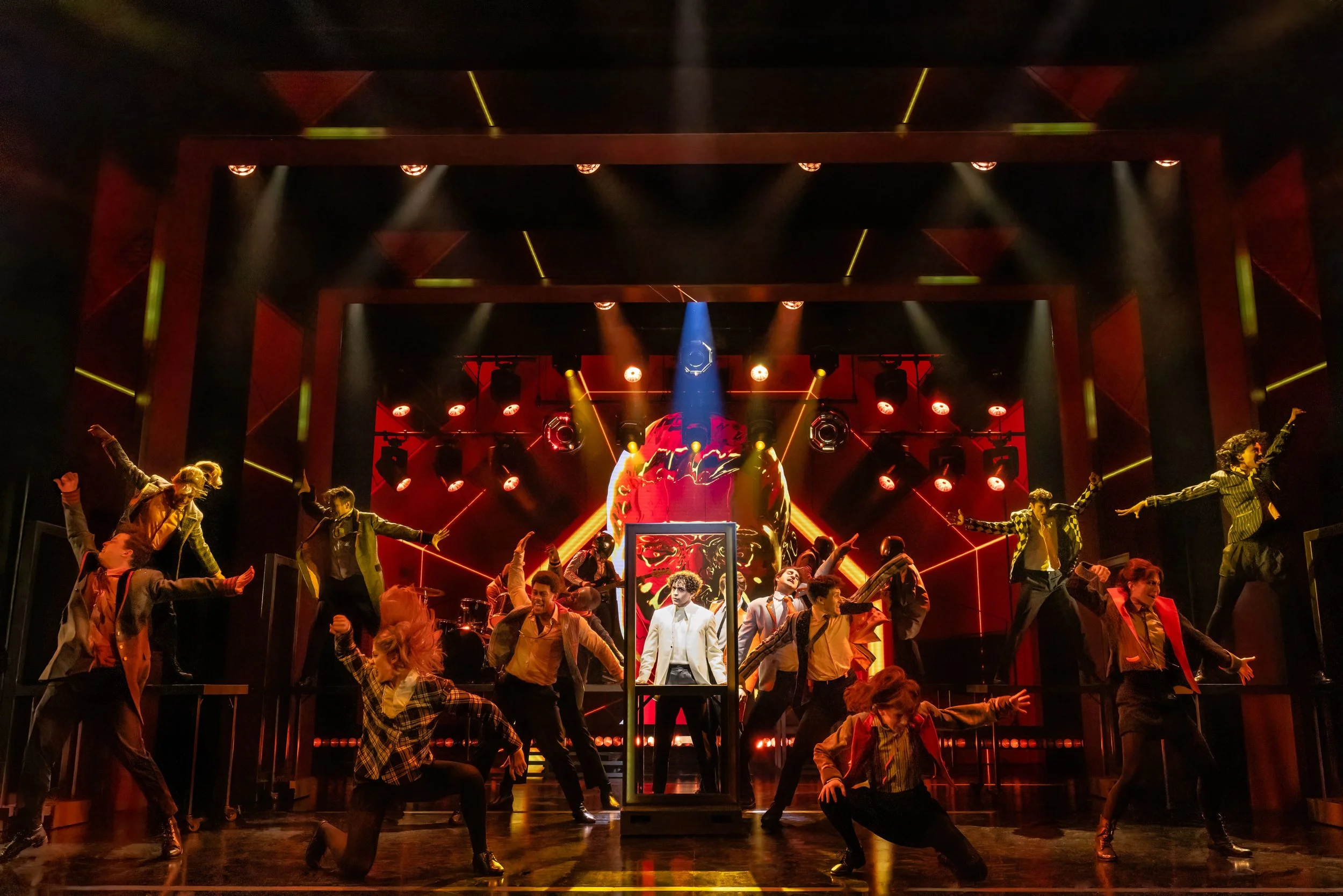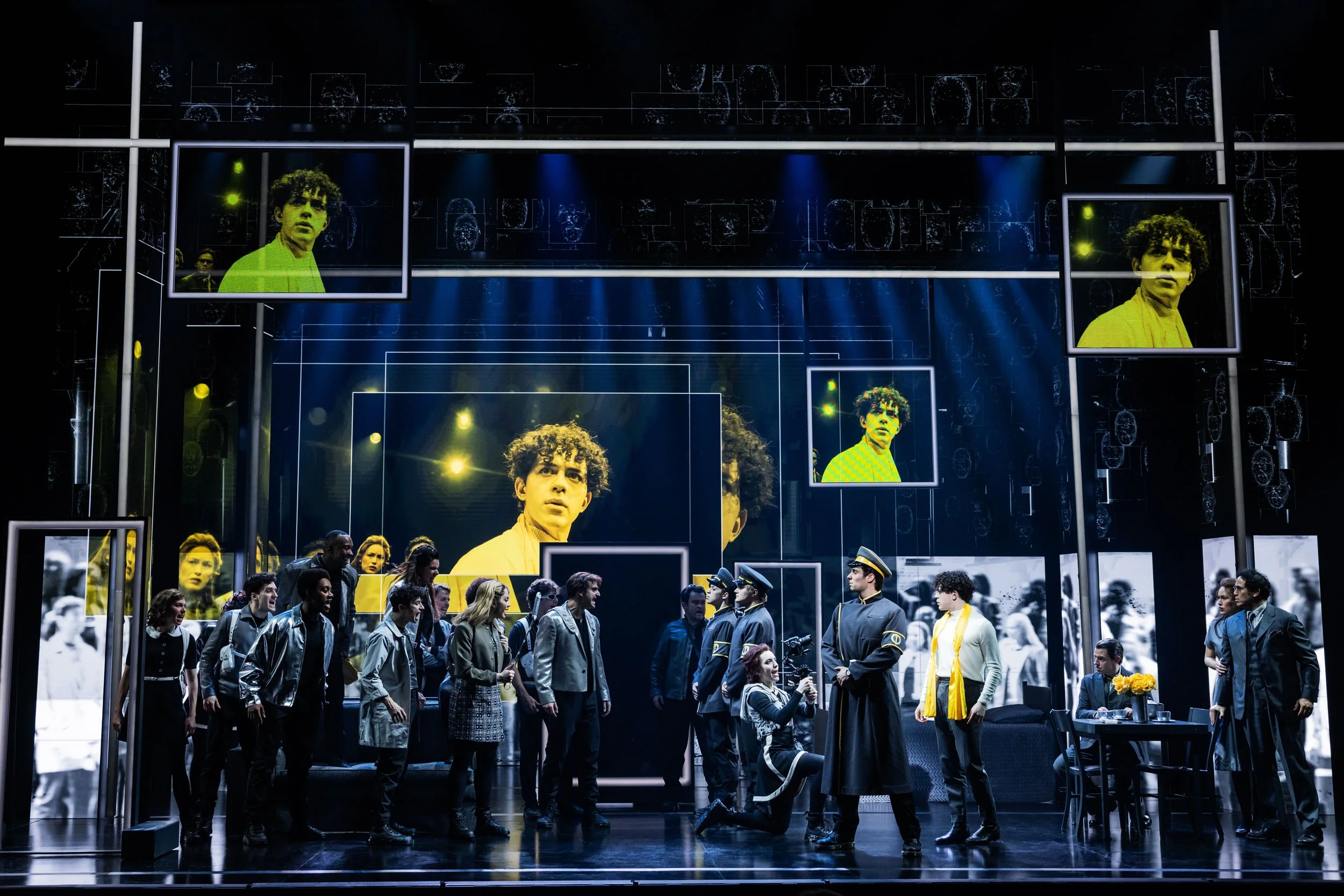Tommy
The ensemble of Tommy
April 30, 2024
It’s an amazing journey, indeed. Tommy, Pete Townshend’s rock opera, has returned to Broadway and it is nothing short of thrilling.
Directed by Des McAnuff, who directed the original Broadway production in 1993, Townshend’s story of a pinball sensation resonates even more strongly in 2024. Telling the story of a traumatized young boy who becomes psychosomatically deaf, blind and nonverbal, Tommy offers a wealth of opportunity for symbolism. And it looks sensational while doing it.
Audiences first meet Tommy’s parents (Alison Luff and Adam Jacobs, both of them in fine voice and endearing) and witness them falling in love during World War II. After Captain Walker is captured and held prisoner, and his wife is led to believe he is dead, she raises their son as a single mother. Captain Walker’s return, and finding his wife in the arms of another man, leads to the other man’s accidental death, witnessed by Tommy while staring in a mirror. His senses shut down, and his “amazing journey” begins.
As his parents take him from doctor to doctor, and even an Acid Queen (Christina Sajous), in search of a cure for a cure, young Tommy is guided by his older self, played by Ali Louis Bourzgui in a sensational Broadway debut, while those surrounding Tommy the real world abuse him in devastating ways – his uncle (John Ambrosino) sexually and his cousin (Bobby Conte) bullying. His uncanny ability to play pinball is discovered, and he is propelled to stardom until his senses return and he is elevated to the status of a messiah, with feverishly devoted followers.
It hardly makes sense, but McAnuff’s production, brought to life by a talented creative team, encourages the audience to suspend their disbelief. The technological themes are emphasized through David Korins’ mechanical black set, adorned with neon white frames and surrounded by screens projecting atmospheric visuals (Peter Nigrini), lit by Amanda Zieve. Add in Gareth Owen’s sound design and the feeling of being in a video game or spaceship is complete – especially when the ensemble don sensory deprivation helmets that invite thoughts of Squid Game.
Earning the audience’s investment in the characters requires powerful actors, and Bourzgui more than meets that demand. Simultaneously vulnerable and aloof, impassive and emotional, his presence as a guide borders on mystical as he sings “Amazing Journey” and “Sensation” to his younger self, inviting both curiosity and tenderness.
It’s easy to project different meanings onto Tommy. It can be a cautionary tale about false idols and cult worship. It can be an inspirational affirmation about acceptance and recovery from abuse. More than three decades after its first Broadway run, it can be a cautionary tale about the role technology plays in the world and its desensitizing effect on our senses and a heartbreaking depiction of the dehumanization of medical care. And, of course, it invites parallels to Donald Trump – a leader of a cult upon whom power and significance is projected, regardless his qualifications and for trivial reasons. It was not lost upon me that Tommy’s security guards are clad in military garb. One wonders what meaning Tommy might hold in another 30 years.


